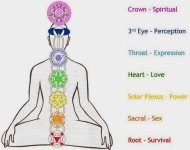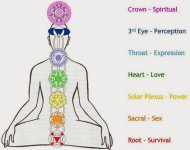Subsymbolic
Screwtape
- Joined
- Nov 23, 2017
- Messages
- 806
- Location
- Under the Gnomon
- Basic Beliefs
- Beliefs are an ancient theory of brain content which would be ripe for rejection except it's the idiom in which we came to know ourselves and thus elimination is problematic. We make it up from there
Irrefutable logic is not in need of evidence.
Sure, but irrefutable logic needs objectively true premises and where are you going to get objectively true premises from? Because yours are as circular as the orifice you pulled them from.
To experience requires something that can experience and the things it can experience.
Do you have any objective evidence for all of your premises? More to the point can you explain what exactly your irrefutable logic is. As you are clearly a logician as you are able to state what is irrefutable, Formal notation would be nice. But logical sentences are acceptable.
There is no other way.
Even if I accepted your premises, which I don't as they are not objectively verifiable, or your logic which has yet to be demonstrated, the simple fact is that an entire school of philosophy, psychology and neurobiology, linguistic behaviourism disagrees with you. Now, I freely admit I don't agree with them, but there is no denying that they do offer a consistent and coherent other way with the added benefit of being entirely objective. You know, like you insist others are when arguing about conscious experience.
Thus all we have are magic words and name dropping as opposition.
And someone who has different standards for himself and others.
We could break it in half for those having trouble.
You can have 'not' and I'll have 'objective'.
How is something experienced unless there is something capable of having an experience?
When you prove, objectively that anything is experienced, rather than your increasingly shrill assertion that your subjective misidentification of your intentional states for phenomenal ones. Objectively all you have got is heterophenomenology (look it up) and no amount of ranting will get you from there to objective experience. Don't forget, objective evidence is your gold standard, not mine.
What would it mean for there to be experience but nothing having it?
Objectively you cannot have that assertion. All you can have is 'what would it mean for someone to be sincerely claiming they had experience but nothing having it'.
In which case the answer is that Dan Dennett is right?
Objectively, of course.


